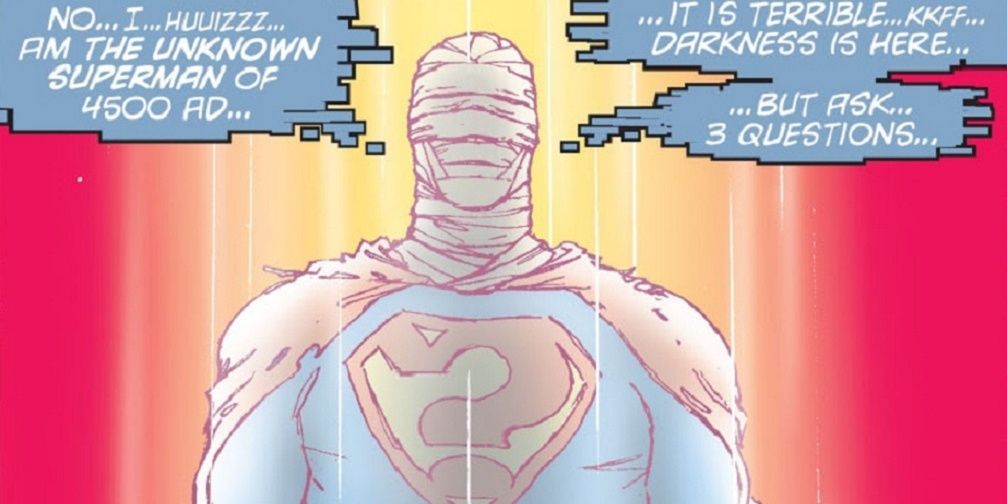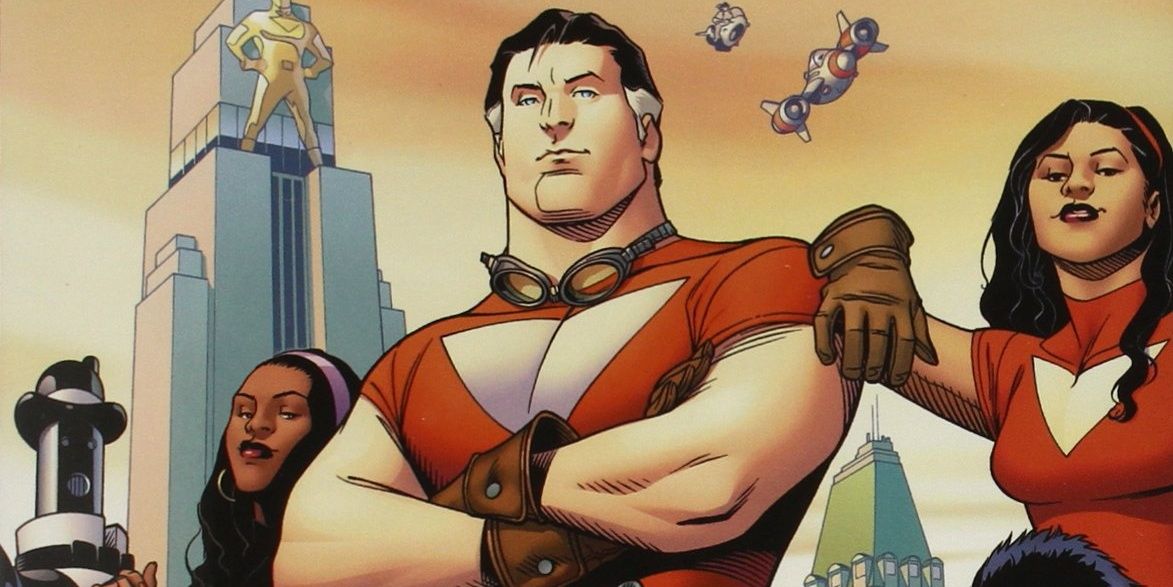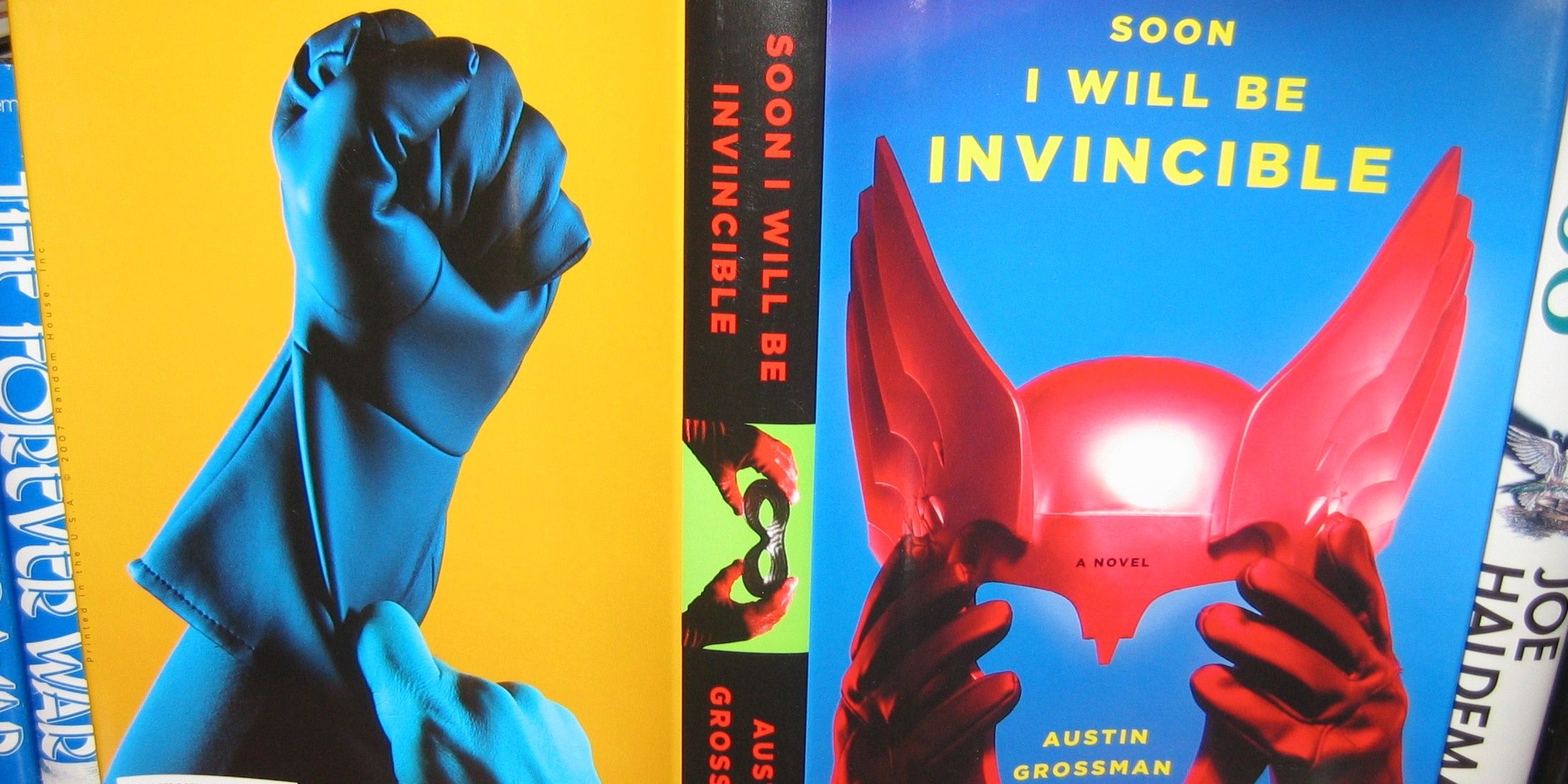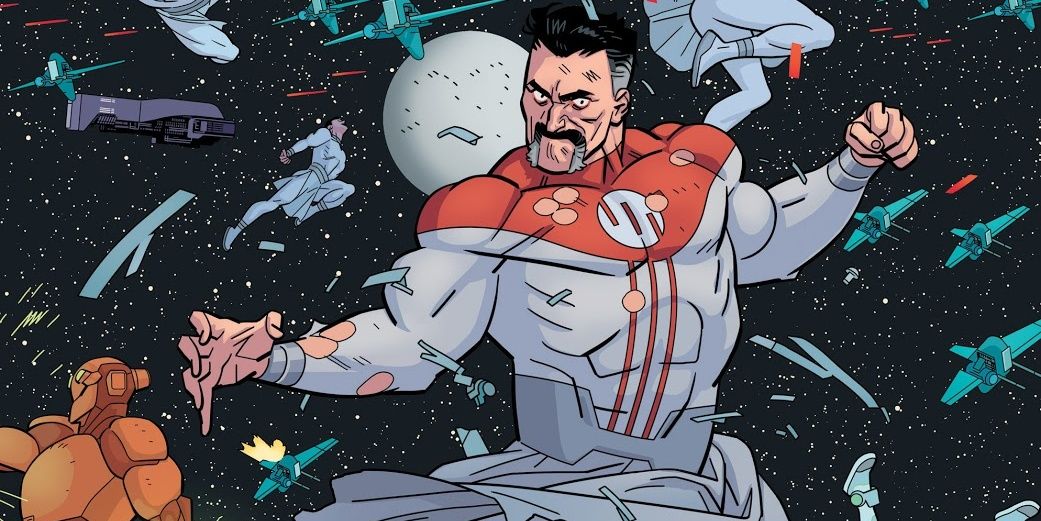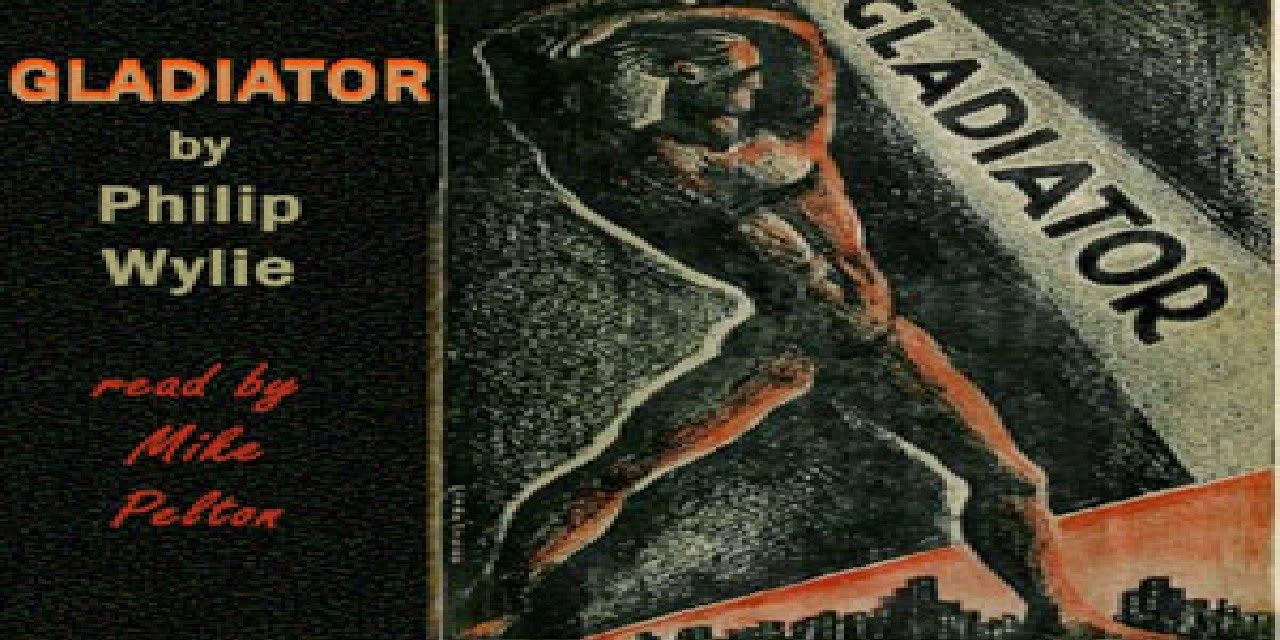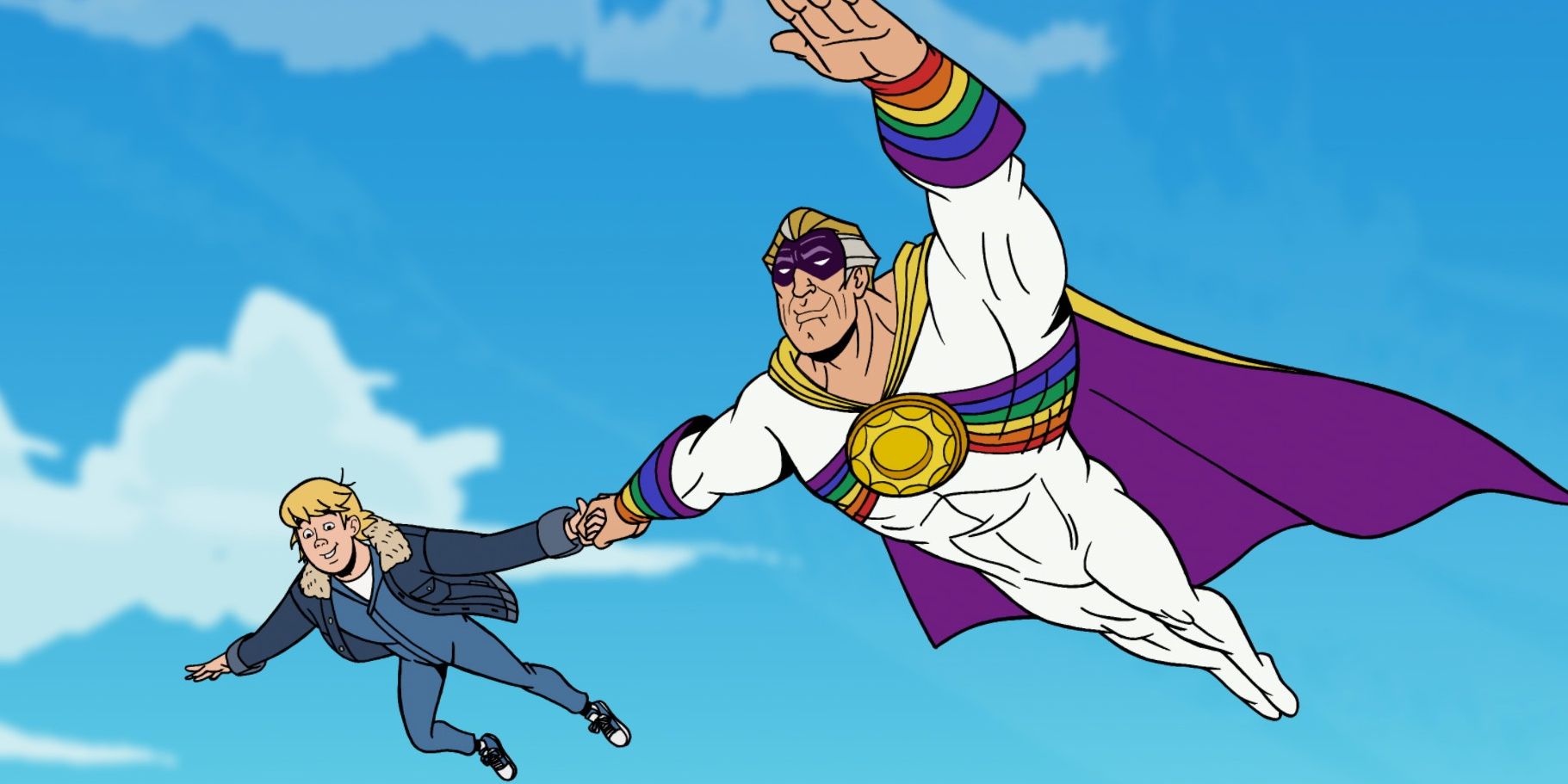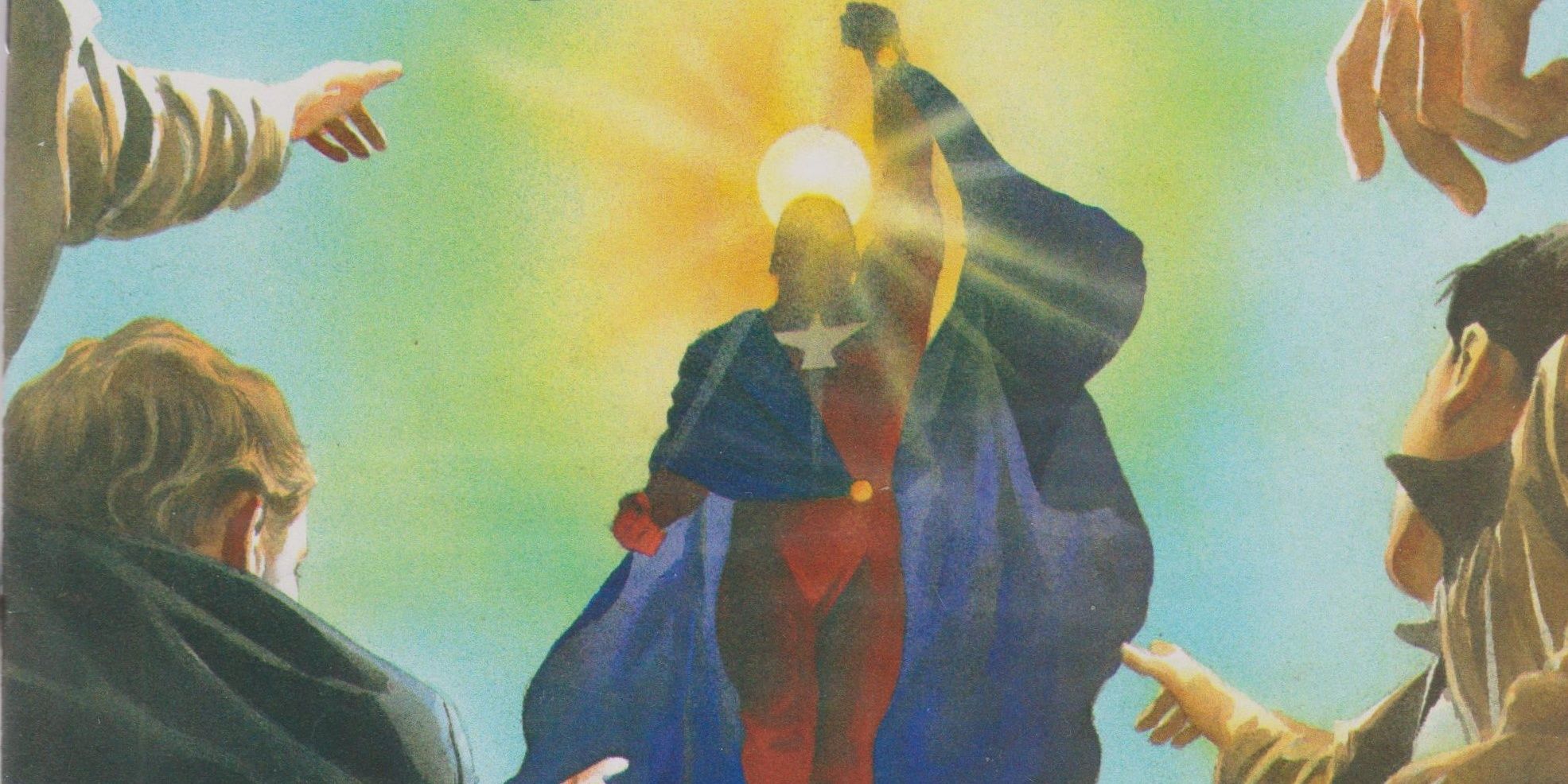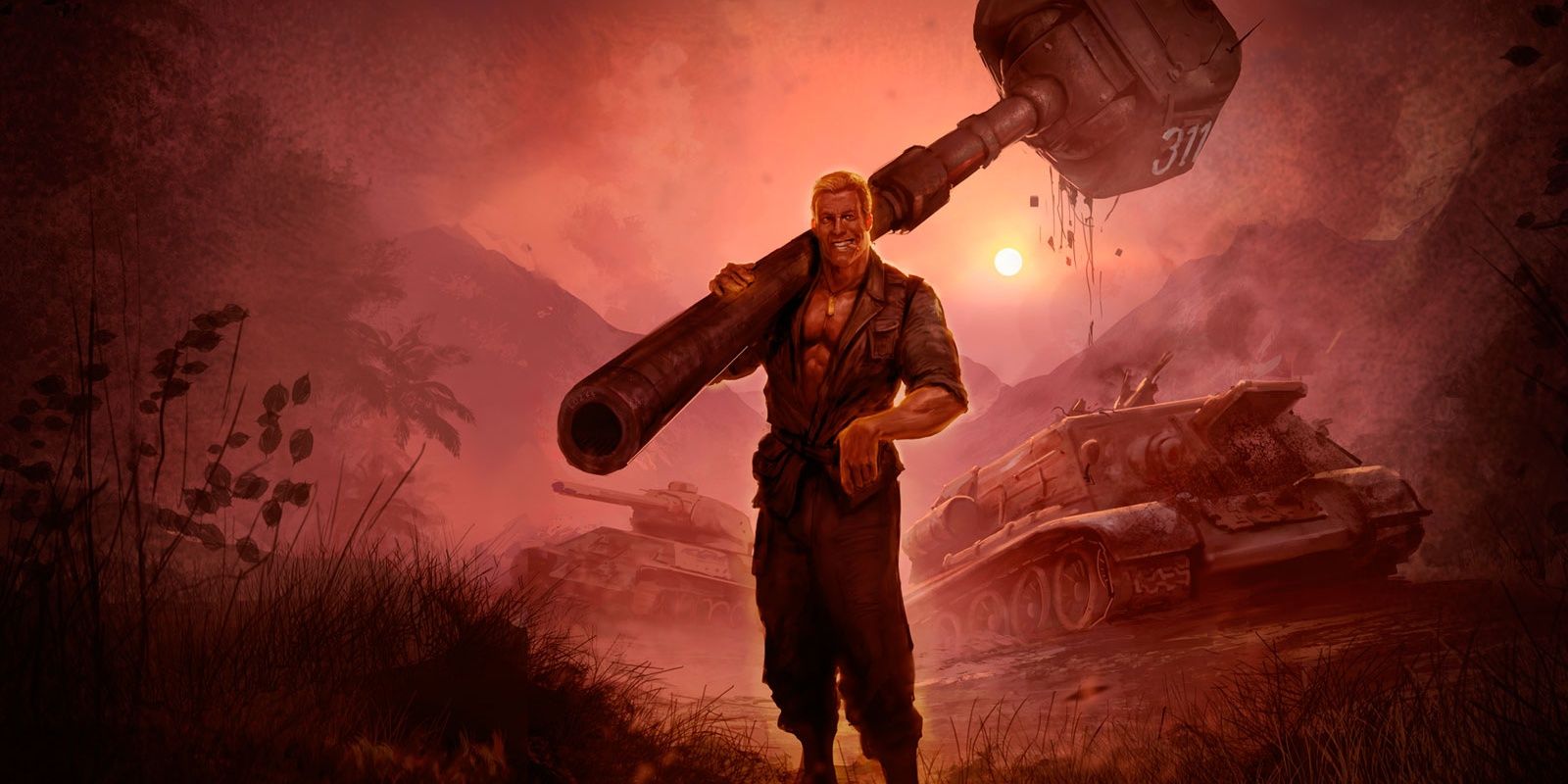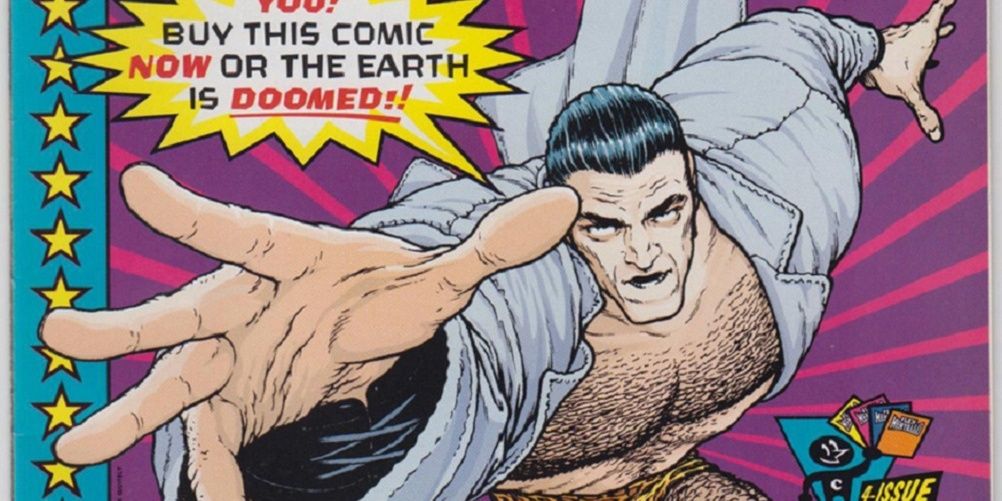Superman's an immense cultural icon, so it's no surprise he's been pastiched and ripped-off innumerable times. If there are three powers a comics writer is going to give a character, they're strength, flight, and invulnerability. It's the price of massive success. Marvel Comics alone has provided us with Hyperion, The Sentry, and Wonder Man, three characters that smell enough like the Man of Steel to turn noses in their direction.
Naturally, these Other Supermen have had smaller footprints, but that doesn't mean they aren't wonderful. You may have heard of a few, but it's unlikely you'll have caught them all.
10 The Unknown Superman
The Unknown Superman of 4500 AD appeared in Grant Morrison's All-Star Superman. A riff on DC's weird war character The Unknown Soldier, this identityless hero joined the wacky, time-traveling Superman Squad in pursuit of a time-eating Chronovore slated to attack Superboy's Smallville. The group, and Unknown, in particular, tried to keep the Boy of Tomorrow from interfering, but, of course, they couldn't. In the battle, the Chronovore ate 5 minutes of the young hero's life—the 5 minutes his father died in.
Unknown turned out to be the original Kal-El, disguising his identity in a doomed attempt to change the past. Heroes always try.
9 Tom Strong
Tom Strong's a pastiche of a lot of characters. Along with Supes, pulp characters like Tarzan and Doc Savage are an important part of his DNA. Strong's the muscular super scientist created by Alan Moore for his optimistic America's Best Comics series that also gave us Top 10 and Promethea.
Shipwrecked on an island and raised in a hypergravity chamber, Strong's a positive character Moore created to combat the darkness that seemed to infect superhero comics after his own forays into comics deconstruction Watchmen and The Killing Joke. Tom's a hero who looks for nonviolent solutions but can throw down when need be. He's also a good husband and dad, one of the few examples of a nondysfunctional multiracial family in comics.
8 Corefire
Doctor Impossible wants to rule the world, but that's not his real problem. His real problem is Corefire.
Austin Grossman's 2007 novel Soon I Will Be Invincible chronicles a hilarious supervillain's attempted rise to power, spending half a lifetime getting his superhuman body and mind under control only to discover it didn't matter. Corefire, the world's greatest hero, is invincible. The laws of physics don't apply to his perfect, zero-inertia speed-of-light, denser-than-reality body. Besides that, he's infuriatingly arrogant and casually cruel.
After Impossible realizes that Corefire must have been responsible for an old friend's death, he finally makes up his mind; he'll sacrifice everything to become Invincible too.
7 Omni-Man
There's a greater-than-zero chance many of you are familiar with Invincible's dad, Omni-Man. An impossibly powerful alien, Omni-Man claimed to have crashlanded on Earth before he became her mustachioed defender and settled down to raise a family. After his son developed his own powers, though, Nolan Grayson decided it was time to play his hand. He murdered his Earth's version of the JLA and explained to his son Mark that he was actually there to conquer Earth in the name of the Viltrumite Empire.
Omni-Man changes allegiances several times during Robert Kirkman's lengthy Invincible series. Eventually, he realizes his betrayal of Earth and its heroes were his worst possible choices. He's a complex character and spends years trying to make amends with his family, regain their trust, and destroy the Viltrumite government completely.
6 Gladiator
Philip Wylie's 1930 novel Gladiator is one of Superman's most direct inspirations. It's a story about a super scientist whose potion grants his son, Hugo Donner, invulnerability and "the proportionate strength of an insect," an image that's used on the first page of Action Comics to explain Superman's strength.
It's a strange story, with its hero spending his life concealing his powers at his father's urging, an idea Zack Snyder fixated on in Man of Steel. The character's made appearances in both Marvel and DC comics, most notably as "Man-God" in the 1970s, and more recently has morphed into a Captain America style super-soldier. The original version is the best, though, deconstructing superhuman powers before they were even a trope. For example, as a kindergartner, Hugo almost kills his school's bully protecting other children. His powers are a dangerous burden to carry from the beginning, not the blessing they're usually portrayed as.
5 Miracleman
Captain Marvel, whom you might know as Shazam!, was Superman's most successful rip-off. Marvelman was the Marvel's British rip-off, and in the States, they called him Miracleman. In the early 1980s, Alan Moore resurrected the character in his first attempt at superhero deconstruction. This resulted in an initially confused hero with godlike powers who slowly morphs into a disconnected ubermensch. He's never evil, and, in fact, transforms his world into a global utopia, but he is disturbingly and beautifully inhuman.
Miracleman borrowed the concept of the "magic word" from Shazam! In this case, it's a hypnotic keyword ("Kimota!") that allows the hero to swap out his mortal body for a superhuman one. He eventually realizes there's no reason to ever become human again and rules his world as a flawed, benevolent God.
4 Captain Sunshine
The Venture Brothers Superman pastiche is jaw-droppingly funny. Voiced by Batman: The Animated Series actor Kevin Conroy, Captain Sunshine is a terrific combination of overwhelming power and naivete. He drops criminals off in prison yards with pithy quotes and doesn't notice when they're released because they were never arrested.
He's similarly clueless about how his need to always have a boy sidekick, Wonderboy, in his life looks to the outside world. He's not a pervert, but no one knows that, so it's honestly surprising that other heroes will still work with him. Between solid scripts and Conroy's outstanding acting, Captain Sunshine stands as a monument to good intentions gone persistently wrong.
3 The Samaritan
Astro City is the jewel in Kurt Busiek's crown. The first issue introduces The Samaritan, a traveler from the future who returned to rescue a doomed world. The immense powers his journey through time grants him made this relatively easy, but there was no condemned future to return to, so he remained in the present.
Samaritan is written as a nearly perfectly moral person. Given his powers, this is a huge problem. Anytime he's sleeping, eating, or chatting with a friend, someone is probably dying because he's not there for them. He's decent and well-adjusted, but sleeps less than four hours a night. There's no room in his hero's life for himself. He loves the feeling of flight, but because he casually approaches light speed, he spends less than a minute a day in the air.
2 Jack Braun
Before Game of Thrones, George R.R. Martin edited the anthology series Wild Cards. The story of Aces (powered people) and Jokers (deformed people) randomly altered by an alien virus, the collaborative novel series boasts several standouts. Golden Boy is its tribute to Superman.
Indestructible and impossibly strong, Braun also never ages. He seems like the luckiest guy alive, and, at his happiest, he busts Nazi heads with his fellow American Aces. After WW2, though, he's declared a "premature anti-fascist," and testifies before the proto-McArthyist House Unamerican Activities Committee. Panicked by a foe he can't punch, he names names, revealing his fellow heroes' identities. Some die, some are deported, one ends up in a mental institution. Braun's new name is the Golden Judas and, being a mostly-decent person, he knows he earned it.
1 Flex Mentallo
The Man of Muscle Mystery first appeared in Grant Morrison's Doom Patrol, and Morrison returned to him in a 1996 mini-series. Flex is a pastiche of Superman and Charles Atlas, whose ads for "a more muscular you" graced comics for decades. Flex is an almost disturbingly wholesome character who always wears a leopardskin bikini and appreciates others' weirdness.
He also serves as the embodiment of Silver Age values in the midst of comics' Dark Age. Vulnerable to various shades of "Mentallium," he nonetheless uses his ill-defined powers of "Muscle Mystery" to investigate a dark series of crimes that threaten his world.
Everything turns out okay. Flex is such a great guy it's hard to imagine anything ever ending any other way.


